faithful servant of God and zealous preacher of His Word, intercede for us that we may grow in holiness, strengthen our faith, and inspire us to live with love and devotion. Guide us in our struggles and help us to remain steadfast in our commitment to Christ. Through your powerful intercession, may we find peace, courage, and grace. Amen."
ST. LAWRENCE OF BRINDISI
ST. LAWRENCE OF BRINDISI
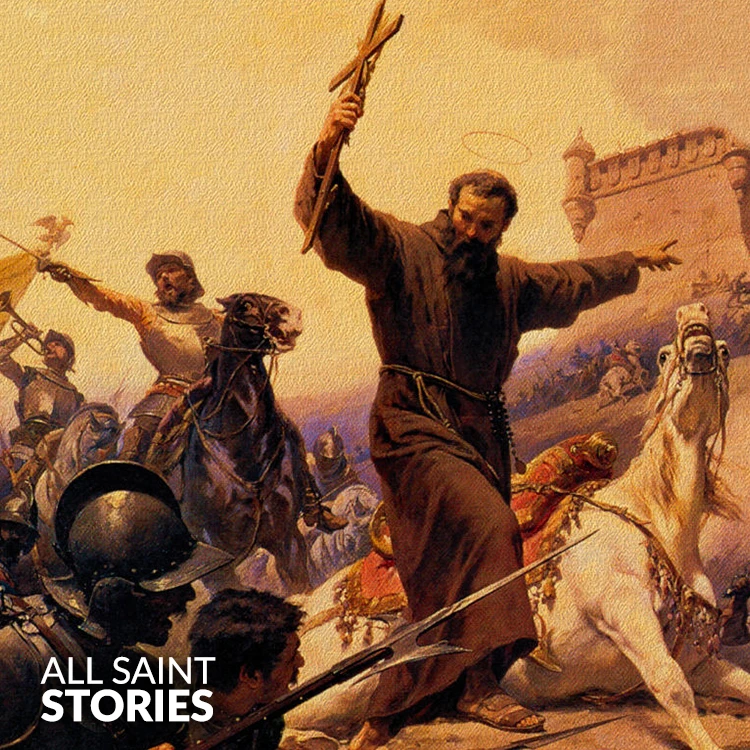
St. Lawrence of Brindisi was a 16th-century Capuchin friar, theologian, and preacher from Italy. Known for his fluency in multiple languages, he was a skilled diplomat and military chaplain who played a crucial role in defending Catholicism during the Counter-Reformation. He traveled extensively, converting many through his powerful sermons. Pope Leo XIII declared him a Doctor of the Church in recognition of his theological contributions.
St. Lawrence of Brindisi was born Giulio Cesare Russo on July 22, 1559, in Brindisi, Italy. Orphaned at a young age, he was raised by relatives who ensured he received an excellent education. Recognizing his intellectual abilities and deep religious inclination, he joined the Capuchin Franciscan Order at the age of 16, taking the name Lawrence.
His studies continued in Verona, where he demonstrated an extraordinary aptitude for languages, mastering Latin, Greek, Hebrew, and several modern European tongues. This linguistic talent made him a powerful preacher, as he could communicate effectively with diverse audiences. He was ordained a priest and quickly gained a reputation for his theological depth and ability to inspire conversion.
During the late 16th and early 17th centuries, Europe was embroiled in religious conflicts, with Protestantism spreading rapidly. St. Lawrence became a key figure in the Catholic Counter-Reformation, traveling extensively across Europe to defend and strengthen the faith. His sermons were particularly impactful in Germany, where he debated Protestant theologians and reinforced Catholic doctrine. His eloquence, combined with his deep knowledge of Scripture and Church teachings, made him one of the most influential preachers of his time.
Beyond his preaching, St. Lawrence played a significant role in diplomatic and military affairs. He served as a chaplain to Christian armies fighting against the Ottoman Turks and was instrumental in the Catholic victory at the Battle of Székesfehérvár in 1601. He is said to have carried only a crucifix into battle, inspiring the troops with his faith and confidence in divine assistance.
In addition to his missionary and military work, he held high positions within the Capuchin Order, serving as Minister General. His administrative leadership helped expand the order’s influence and ensured the continued spread of Franciscan ideals. Despite his heavy responsibilities, he remained committed to scholarly pursuits, writing numerous theological works that earned him the title of Doctor of the Church, conferred by Pope Leo XIII in 1959.
St. Lawrence died on July 22, 1619, in Lisbon, Portugal, while on a diplomatic mission. His legacy endures through his writings, sermons, and the example of his unwavering faith. Venerated as a saint and a Doctor of the Church, he continues to inspire those dedicated to preaching, scholarship, and the defense of the Catholic faith.
Video Not Found
The information on this website is compiled from various trusted sources. While we aim for accuracy, some details may be incomplete or contain discrepancies.
If you notice any errors or have additional information about this saint, please use the form on the left to share your suggestions. Your input helps us improve and maintain reliable content for everyone.
All submissions are reviewed carefully, and your personal details will remain confidential. Thank you for contributing to the accuracy and value of this resource.
Credits & Acknowledgments
- Anudina Visudhar (Malayalam) – Life of Saints for Everyday
by Msgr. Thomas Moothedan, M.A., D.D. - Saint Companions for Each Day
by A. J. M. Mausolfe & J. K. Mausolfe - US Catholic (Faith in Real Life) – Informational articles
- Wikipedia – General reference content and images
- Anastpaul.com – Saint images and reflections
- Pravachaka Sabdam (Malayalam) – Saint-related content and insights
We sincerely thank these authors and platforms for their valuable contributions. If we have unintentionally missed any attribution, please notify us, and we will make the correction promptly.
If you have any suggestion about ST. LAWRENCE OF BRINDISI
Your suggestion will help improve the information about this saint. Your details will not be disclosed anywhere.
© 2026 Copyright @ www.allsaintstories.com

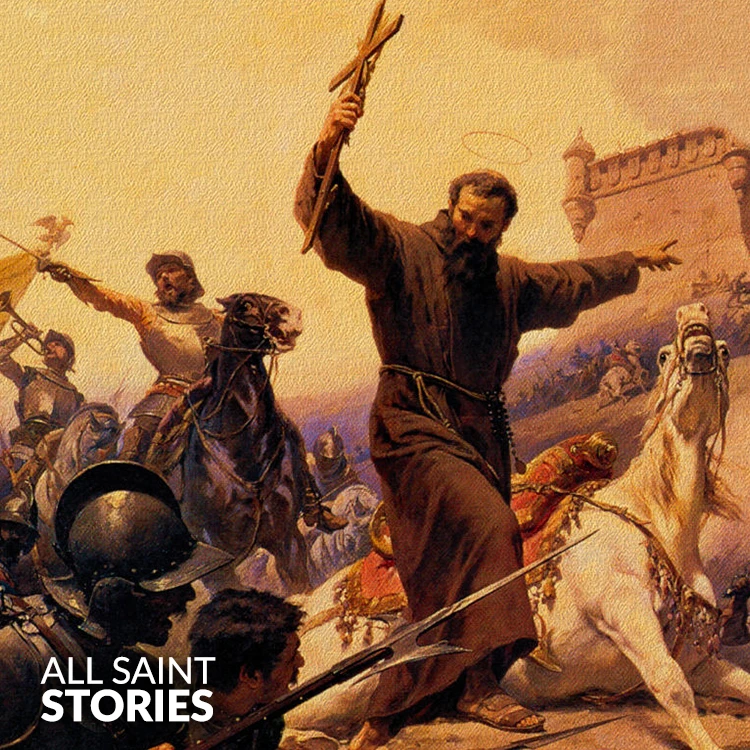
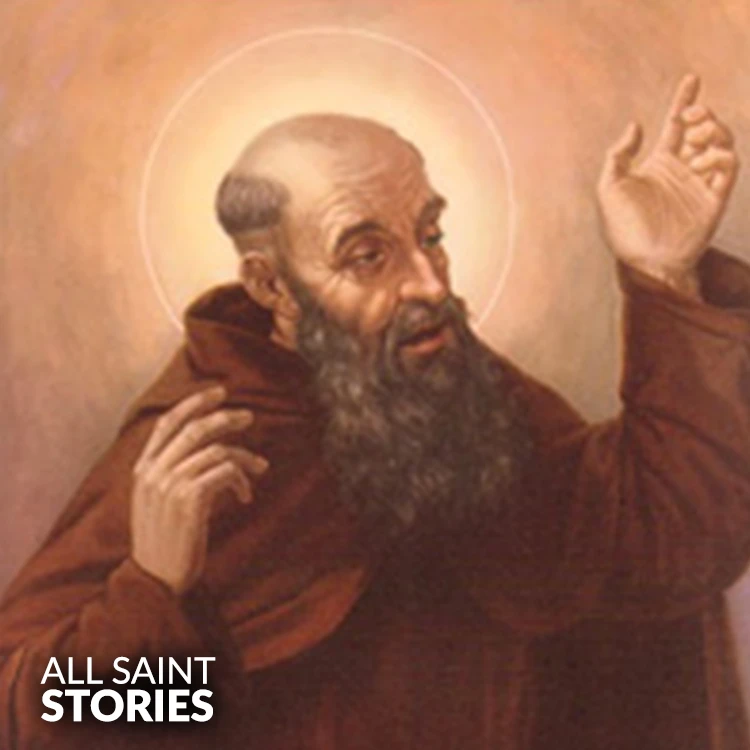
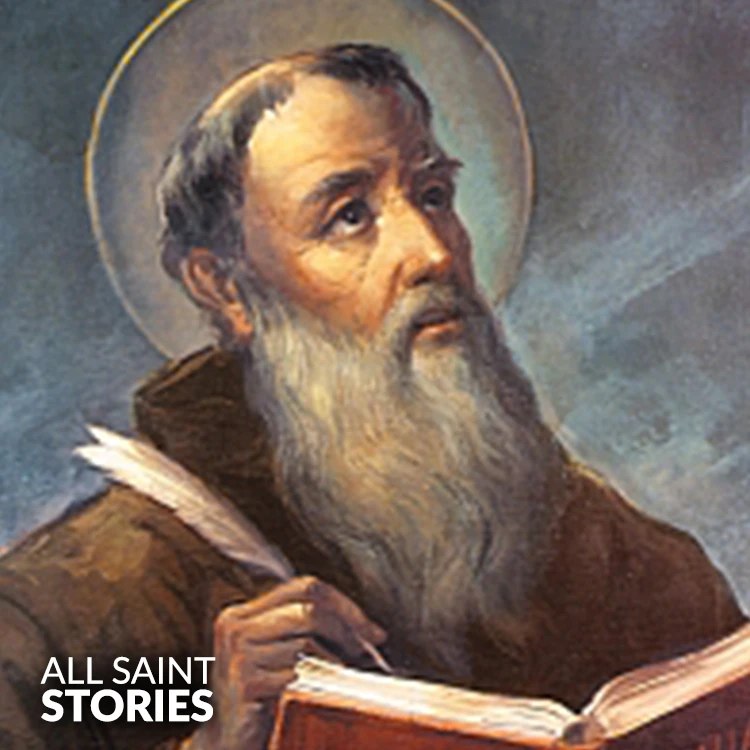
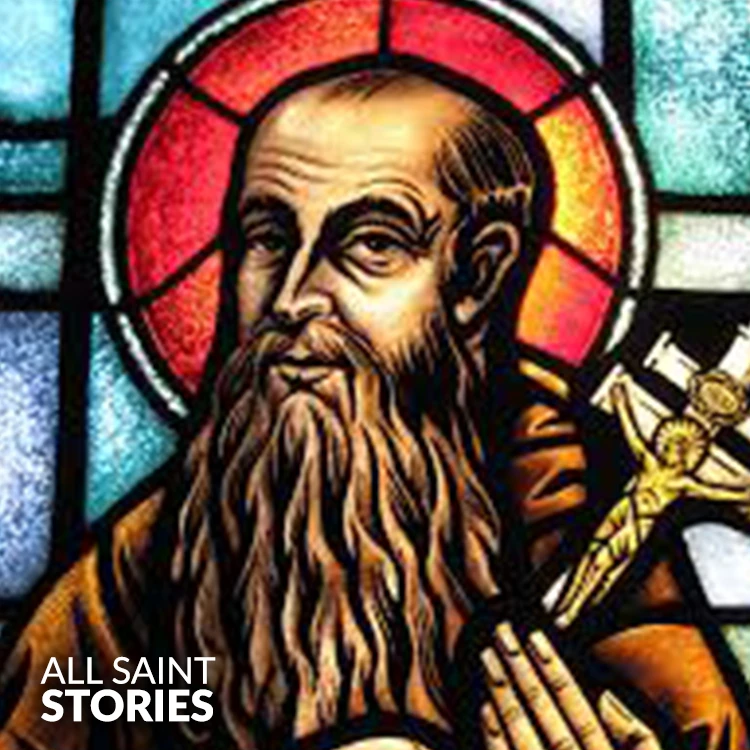

 English
English
 Italian
Italian
 French
French
 Spanish
Spanish
 Malayalam
Malayalam
 Russian
Russian
 Korean
Korean
 Sinhala
Sinhala
 Japanese
Japanese
 Arabic
Arabic
 Portuguese
Portuguese
 Bantu
Bantu
 Greek
Greek
 German
German
 Dutch
Dutch
 Filipino
Filipino